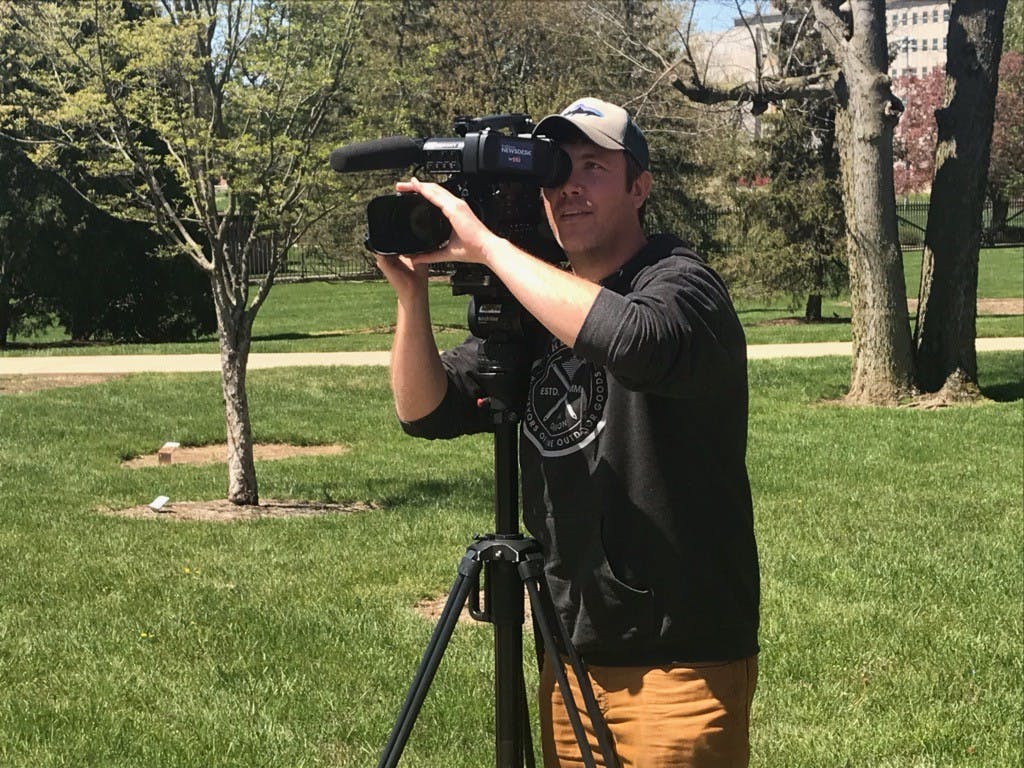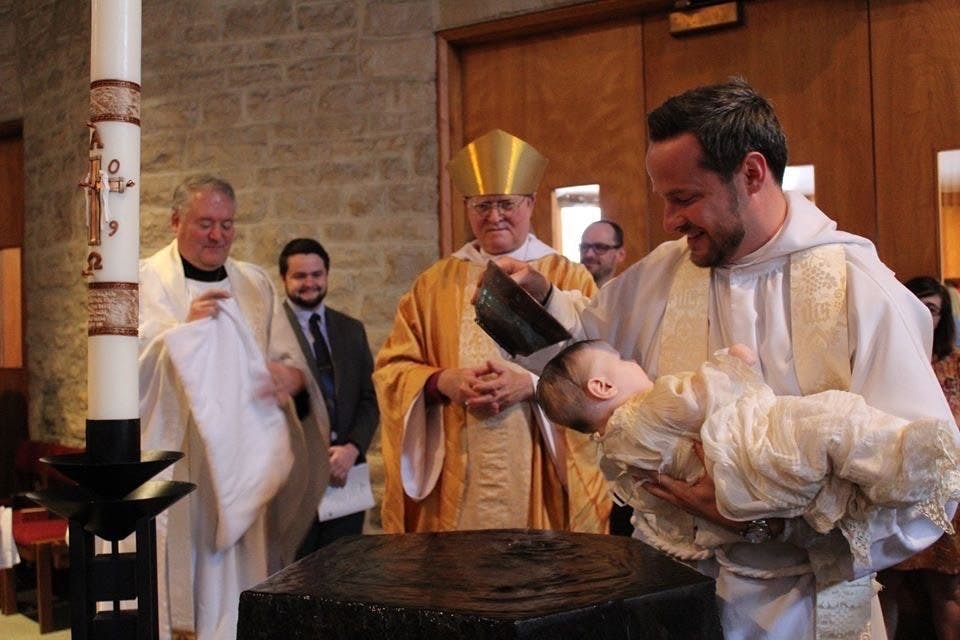In the summer of 2008, Molly Mealer got a job in a mall at a Victoria’s Secret.
She had just graduated from IU with a degree in apparel merchandising. She had spent four years learning how to analyze, manage and improve retail companies at a high level. Now she showed customers where to find panties, perfume and lingerie.
Mealer never expected her first job out of college to be a part-time gig in a mall. She wasn’t alone. The Great Recession, the biggest financial crisis since the Great Depression, caused unemployment rates to spike to 10% in 2009, reshaping the futures of all IU's then-graduates.
This year’s graduating class may face similar challenges to Mealer's when she got her diploma 12 years ago. The COVID-19 pandemic is wreaking economic havoc and putting people’s lives in danger.
While official rates have not yet been released for April, the unemployment rate may be close to 18% according to Fortune,meaning nearly one in five workers don’t have a job.
Joe Lovejoy, director of the IU Walter Center for Career Achievement, said while the turmoil caused by the pandemic may seem scary, economic turbulence is more common than it may seem.
“While it doesn’t always feel that way, it’s actually kind of normal for the economy and the job market to make huge shifts every 10 years or so, so I think we’re seeing another one of those now,” Lovejoy said.
While the exact circumstances of the Great Recession and today’s COVID-19 economy are different, feelings of uncertainty are universal in an economic crisis. Tips from IU alumni who graduated in the Great Recession may offer insight for today’s students on how to navigate an unpredictable future.
Tip #1: Don’t be ashamed of not getting your dream job right away
Mealer said it was difficult to come to terms with her job in a Victoria's Secret store, especially at family gatherings like Thanksgiving when relatives asked about her job.
“Did I want to say I just graduated from a great university and worked my butt off for this degree and now I’m working in the mall at Victoria’s Secret? No,” Mealer said. “But I knew that I just had to wait for something to open up.”
Mealer was not the only graduate during the recession who had trouble breaking into her chosen field.
After working as a probation officer for three years, Seth Tackett decided to go back to IU to pursue a degree in telecommunications. Tackett already had a lot of credits from his first degree in criminal justice, so he got his second degree within one year and graduated in 2007.
Tackett’s first job was a part-time position making videos for the IU football team. Most of his colleagues were still students.
“I had to eat a big old piece of humble pie, and I moved back in with my mom and had to fill up that résumé with part-time jobs,” Tackett said. “It started with the football team.”
At one point, he was working part time for the IU football team, the Pacers and Community Access Television, all at once.

“I had to kind of nickel and dime part time and freelance opportunities, and I actually didn’t move out until — it’s tough to think about, but it was the summer of ‘15,” Tackett said. “That’s how far and long I was building my résumé up and doing those part-time jobs.”
Today, Tackett is the chief news videographer at WTIU Public Television.
Lovejoy said he encourages students to focus on marketable skills they can gain from their first job if it doesn’t align with their expectations.
Tackett said students shouldn’t worry about future employers judging their past jobs.
“I’ve never had a job interview where somebody was like, ‘Did you live with your mom at the time?’ or ‘Was this a part-time job?’” Tackett said. “You just talked about where you’ve been and what you’ve done and what you’ve learned and what you can bring to the company.”
Today, Molly Mealer is a planning manager at Victoria’s Secret PINK's corporate office in Columbus, Ohio. As an employer herself now, Mealer said she knows that employers experience economic crises too, and they will be understanding.
“They know more than anyone what’s going on in the economy and they have felt the same thing,” Mealer said. “It’s not going to be a surprise that you left college and didn’t have a job. You’re probably going to be actually in the minority if you do at this point.”
Tip #2: Make the most of the job you have
Rev. Michael Kurth, an Episcopal priest in Rye, New York, graduated from IU with a degree in sports media and marketing in 2009. Kurth said it was difficult to find a job in his field of study, so he worked part time at his church for 10 months after graduation.
Kurth said the tight job market helped him find his calling sooner than he would have otherwise.

Kurth’s career benefited in a way from the Great Recession, but he said many of his friends were less happy with the jobs they started in after graduating, and several consecutive IU graduating classes faced tough times.
“We watched it happen to the people above us, and then we watched it happen to us, and then even a little bit to the people that came after us,” Kurth said. “It wasn’t until really like 2010 that things started to really pick back up again.”
Lovejoy said regardless of what job students end up in after graduating, there are universal skills all employers are looking for they can work on. For example, a job like waiting tables could improve skills in communication, problem solving and customer service.
Mealer said she took every opportunity she could to stand out in her first job at Victoria’s Secret. She said when the stores would remodel, they would ask for volunteers to set up merchandise before reopening.
“I would go to every single on of those trips,” Mealer said. “It wasn’t because it was convenient, it was because I knew that I would be able to add that visual merchandising element to my résumé and talk about it.”
Lovejoy said taking initiative in lower-level jobs is important in an uncertain economy.
“Searching for a job and an internship requires skill and grit under normal circumstances, but even more so now,” Lovejoy said.
Tip #3: Grad school is an option, but make sure it's right for you
Mealer said many of her friends changed career paths as a result of the shifting economy. When their planned fields weren’t hiring, they decided to pursue new ones.
Many of her friends went back to school, often pursuing nursing or education degrees. She said some of her friends went back to school just because they were spooked by the markets.
Mealer said it was difficult to watch her friends in grad school while she was working in a mall. She said her mom is a teacher, and there were times when she considered switching into education.
“That definitely would have been the easy way out for me personally,” Mealer said. “I would have been fine at it for sure, but I know I’ve had a very fruitful career so far — I love what I do. Looking back, it would have been such a wrong turn for me.”
Lovejoy said it is a common trend for more students to attend graduate school during a recession. He said this is a good potential path, but only if students are doing it for the right reasons.
“If a student enters a graduate program just as a place to park but they’re not really passionate about that field, and they’re not passionate about studying that topic in-depth, they’re signing up for a rough couple of years,” Lovejoy said.
Tip #4: Don’t forget to network
Lovejoy said he often advises students that 80% of their time job searching should be spent forming relationships and networking. Only 20% should consist of actually filling out applications.
He said this advice holds true especially during an economic downturn. Since there are fewer job openings, building connections with alumni before applying can help students stand out among many job candidates.
Mealer said as an employer and IU alumna, she gets excited when IU grads apply to work at her office.
“Use your network,” Mealer said. “Indiana is the greatest place. I’ve always found alumni to be so helpful and encouraging and responsive and wanting to help.”
Lovejoy said the Walter Center has created a virtual tool to help students in the College of Arts and Sciences get in touch with alumni. Students can search for jobs and locations they see themselves in and can be connected with IU alumni who hold similar positions.
“Employers, if they’re not hiring currently, they will be hiring eventually,” Lovejoy said.
Tip #5: Stay positive — “This too shall pass”
Tackett said patience is important for students starting their careers in tough economic circumstances.
“Be patient, build your résumé even if it is some part time jobs,” Tackett said. “Know that you’re getting better, know that you’re learning, and that it will get better. You gotta keep digging and work hard."
Kurth said the COVID-19 crisis is bringing people together more than the Great Recession did.
“There seems to be a very apparent adversary that is being fought in the virus,” Kurth said. “Communities are becoming stronger in some ways."
Mealer said it’s important for students to not get discouraged by setbacks.
“Don’t let something like the recession discourage you from your ultimate goal,” Mealer said. “This too shall pass, and it always will.”




